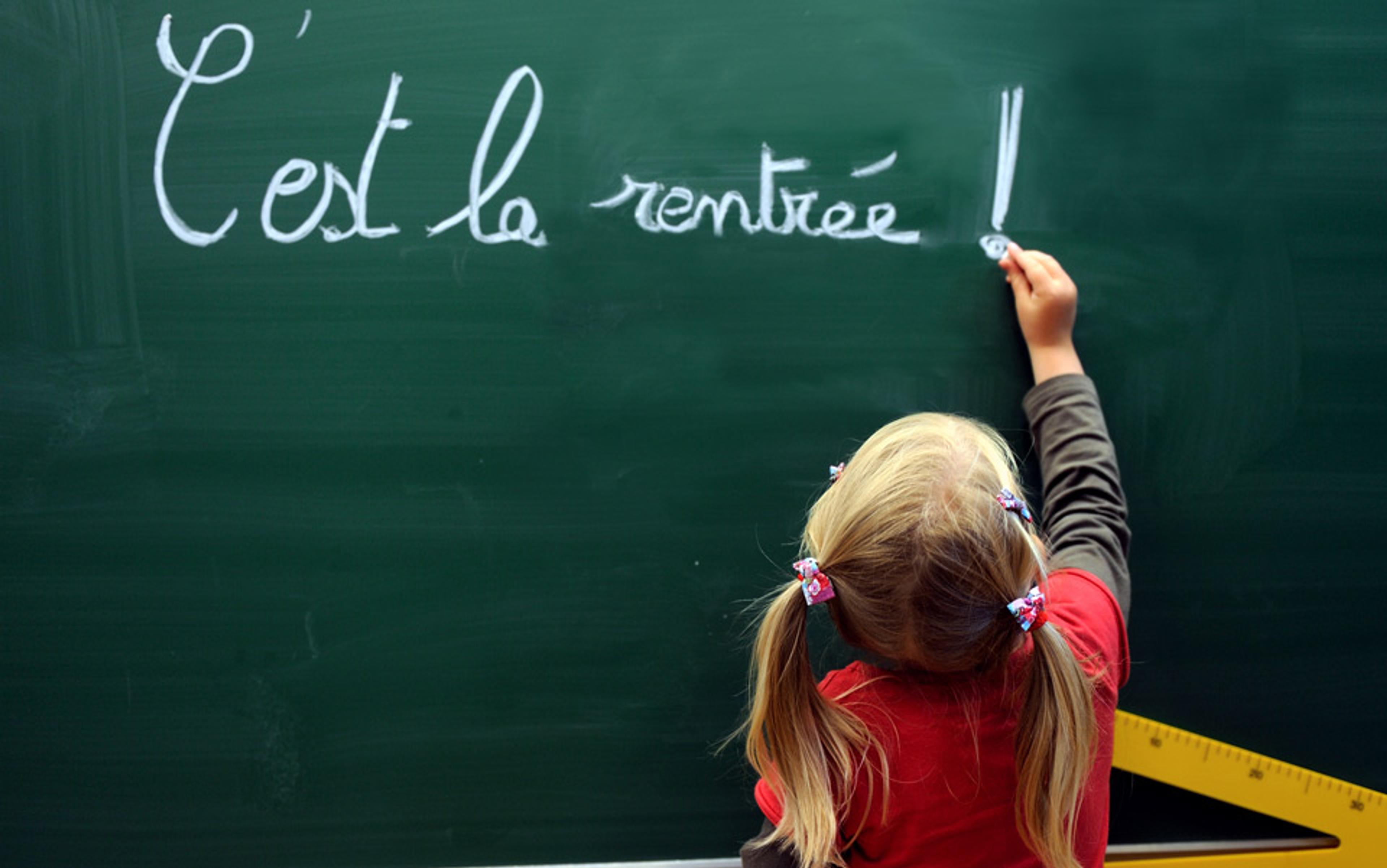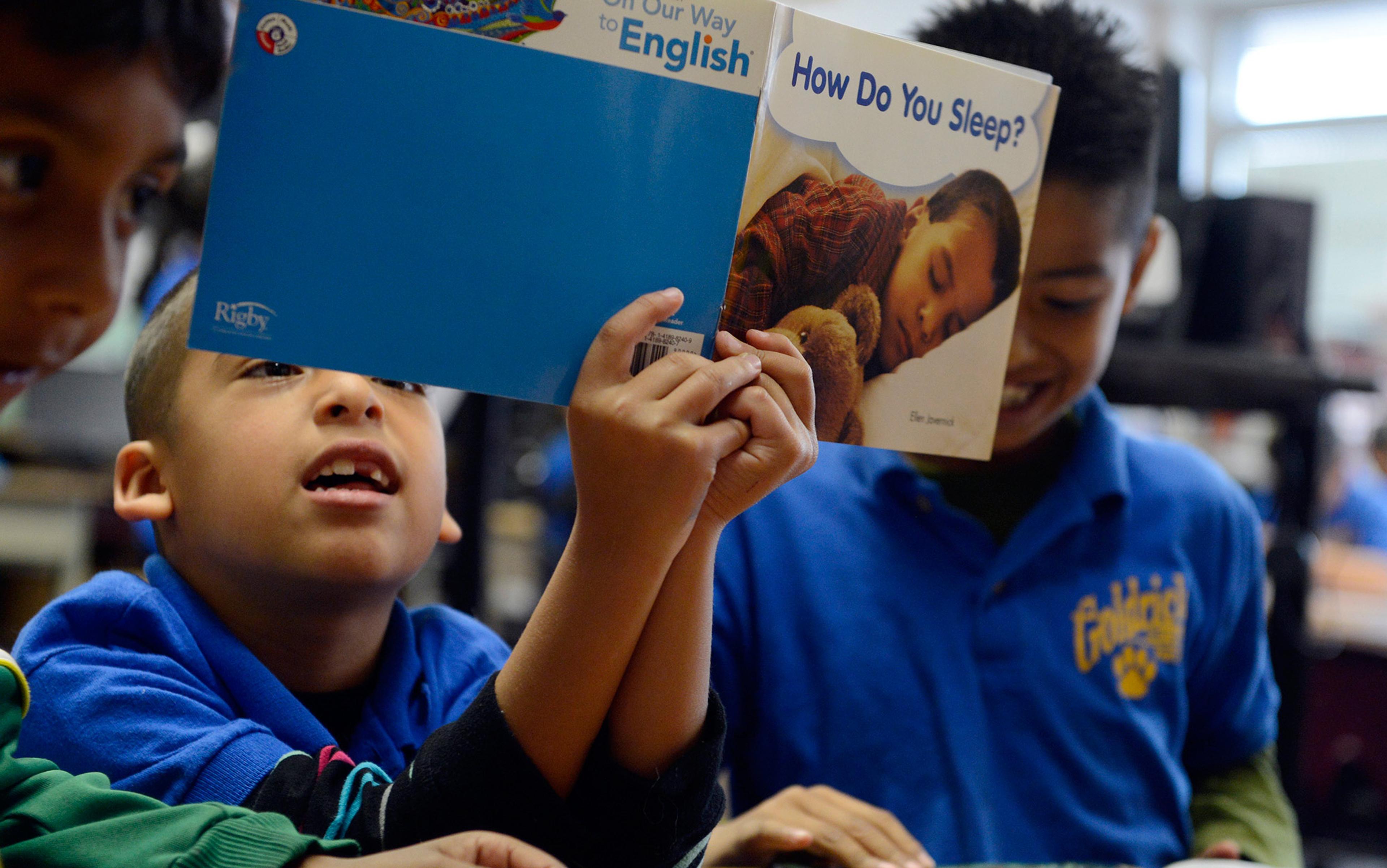By now we’re familiar with the idea that speaking more than one language confers cognitive benefits. For a long time, we’ve been hearing that bilinguals have superior executive function skills. They are also more flexible in their ability to see another person’s perspective; they’re better problem-solvers; and they seem to possess a ‘cognitive reserve’ that helps them ward off the effects of neurodegenerative diseases such as Alzheimer’s.
Amazingly, until recently no one had ventured to ask the next question: does speaking two dialects confer the same benefits?
Just as someone speaking two languages is bilingual, someone who speaks two dialects is bidialectal. That might be someone who speaks Standard Dutch as well as straattaal (literally ‘street language’), a blend of Arabic, Turkish and Dutch incubated in ethnic communities and then adopted by youths. (In Germany, the analog is called Kiezdeutsch; in Sweden, it’s Rinkeby-Swedish.) In the United States, a bidialectal person might be someone who speaks both Standard American English and African-American Vernacular English (called AAVE but also known as ‘Ebonics’), which differ a lot in pronunciation, syntax and vocabulary – so much so that AAVE has controversially been called a distinct language.
So do bidialectals enjoy the same cognitive benefits as bilinguals? The answer might send you out to buy Rosetta Stone: Ebonics or sign up for the Kiezdeutsch Duolingo, but before you do, consider that – oh, never mind. You know perfectly well that there’s no such thing as Rosetta Stone for Ebonics or Duolingo for Kietzdeutsch, and there never will be. You also know that a vanishingly small number of Standard English speakers would ever set out to learn Scots, and the same number of High German speakers will become fluent in Kiezdeutsch, because dialects (and the people who speak them) have low status. And that’s where this story begins: with the story of status.
For a long time, people who spoke more than one language – call them ‘bilinguals’ or ‘multilinguals’ – were considered inferior in many countries. Citizenship in the modern nation has long been defined, in part, through speaking the nation’s language, especially the variety spoken by elites in the capital city.
As a result, the political allegiance of the bilingual person has been suspect – as have their educational and intellectual chops. A big marker of this imperfection? How they inserted parts of one language into utterances of the other, as if they were scraping up bits to patch a hole. The activity was called code-switching.
But starting in the 1990s, a more sophisticated view of code-switching emerged, revealing a highly patterned activity that requires thorough knowledge of the structures of both languages to achieve the switch. That view provided the germ for research into activity in the bilingual’s brain.
The question was this: when bilinguals activate one language in their brains, how do they keep from activating all their languages? One hypothesis: they don’t. All of their languages are activated at the same time, but they inhibit the one that’s unsuitable for the situation. After a lifetime of tamping down one language – or artfully toggling between two – a bilingual would end up with stronger cognitive skills than a speaker who doesn’t switch.
the ‘bilingual industrial complex’ has sprung up to promote language-learning for brain health
And with that hypothesis, bilinguals’ status was raised.
Research appeared to show that speakers of more than one language were, in many respects, cognitively better off than monolinguals. Evidence accumulated that bilinguals had more cognitive flexibility; they could more easily switch not just between languages but one task and the next. They also had more robust executive function, a set of high-level cognitive skills that help to navigate a wide variety of rules, inhibit responses and control emotional impulses. These benefits remained over the course of the bilinguals’ lives, helping them to resist the scourges of ageing.
One effect has been to make bilingualism a desirable state, giving it an aspirational sheen. As a result, the ‘bilingual industrial complex’ has sprung up to promote language-learning – specifically for brain health. ‘Learning language is a workout for brains,’ goes one headline. ‘Learn two languages for a sharper brain,’ goes another. Never mind that the cognitive reserve applies to life-long bilinguals, not to people who take up a foreign language late in life.
Now even childcare providers advertise the benefits of bilingualism for children (though sometimes this looks less like a selling point than a labour-supply work-around: on the website for one daycare facility in Minnesota, I saw the requirement that applicants for jobs ‘must be fluent in Spanish and have English-language competency’). The new turn has proven useful for the governments of countries such as the US and the United Kingdom, which are perennially launching efforts to promote foreign language-learning to their citizenry. The most recent efforts have abandoned the mind-broadening, self-enriching humanistic arguments of yore; instead, they’ve promoted language-learning as a tool for brain health.
Given the new, higher status of bilingualism, might we rehabilitate speakers of dialects in the same way? That’s what the psycholinguists Vera Kempe and Neil Kirk and their team at Abertay University in Scotland set out to investigate. The setting was perfect, because some 85 per cent of the population report using some local variety of Scots, whose speakers use ‘ken’ where a Standard Scottish English speaker would say ‘know’, and ‘hoose’ instead of the standard ‘house’. The Shetland Island variety of Scots, meanwhile, has a peculiar use of ‘be’, which replaces forms of ‘have’, as in: ‘I was stayed with one of my friends’ rather than: ‘I had stayed with one of my friends’, and also turns the ‘th’ of ‘they’ into ‘d’ and the ‘th’ of ‘think’ into a ‘t’.
Speakers of Scots and Standard Scottish English also do a lot of switching, like bilinguals. They have to ‘monitor continuously who can or cannot be addressed in Scots’, and must choose the right pronunciations and vocabulary, and inhibit the ‘competing’ variants – theoretically, their mental representations of ‘hoose’ and ‘house’ are both activated in their brains, and one or the other will be inhibited at any one time, the Abertay researchers found. So it’s reasonable to ask if switching between dialects might be anything like switching between languages. And from there, it’s reasonable to wonder if a brain attached to a body that operates in multiple social contexts with several dialects might be stronger than a brain that operates in only one.
At this point, a lot of people tend to get swept up by technical differences between dialects and languages. Some invoke the 1940s quip by the linguist Max Weinreich – that ‘a language is a dialect with an army and a navy’, implying that what most distinguishes languages and dialects is political legitimacy and power. Others draw the line at mutual intelligibility, or whether or not speakers of different varieties can understand each other. Still others look to linguistic distance, or how many grammatical and phonological differences and distinct lexical items exist. You’ll hear about languages defined as distinct entities that are really varieties of the same thing – Swedish and Norwegian, for instance. You’ll hear about varieties called dialects, even though they’re separate languages; most common is the way languages such as Cantonese or Fujianese are called Chinese dialects.
But here’s the thing: our brains don’t care. Schools care; employers care; armies and navies care. Humming with its electrical charge, the brain doesn’t. Sociolinguists and neuroscientists tend to disagree about how to talk about this; the linguists want to assign languages to discrete buckets in the brain, so they’d say a Scottish bidialectal is pulling two forms out of the same bucket. (They might also try to show that Sardinian isn’t a version of Italian but has its own bucket.) On the other hand, neuroscientists tend to hold that there are no buckets at all, only brain functions: constructing sentences, understanding words, and recognising and producing the sounds of a language, all of which happen in networks that span brain regions. Here’s a metaphor to explain the two approaches. Think of the map at the back of most inflight magazines, showing all the places where the airline flies. Does a language in the brain resemble an outlined space called ‘Mexico’ or ‘Australia’? Or does it resemble the spider web of lines showing all the flights that connect major cities? The latter is the neuroscience view. Consequently, some neuroscientists, such as Franco Fabbro at the University of Udine in Italy, have even explicitly included bidialectalism as a form of bilingualism.
At the very least, one can’t rule out a lack of connection between bilingualism and bidialectalism. At the most, one could say that learning Scots – or AAVE, Kiezdeutsch, straattaal, or a thousand other non-standard varieties – is good for your brain.
The cognitive benefits of bidialectalism is exactly what Kleanthes Grohmann, a linguist at the University of Cyprus, has uncovered. Actually, he prefers to call these speakers ‘bilectals’ (because ‘lect leaves extra room to allow finer grading among linguistic varieties’, he explained). Grohmann and his team ran experiments with children who speak Standard Modern Greek and Cypriot Greek, closely related varieties that differ substantially in vocabulary, pronunciation and grammar. Speakers of those two varieties also do a lot of switching back and forth. He gave a number of tests to children who spoke only Standard Modern Greek, and to children deemed multilingual because they spoke one dialect at school and another at home.
One test is called the Simon task, a widely used probe of executive function. The task sets up people to expect a coloured square in a certain place on a screen, then intrudes on that expectation. People who are distracted by the intrusion delay pushing a button corresponding to the square’s colour. The better one powers through the distraction, the faster one’s reaction time, and the stronger one’s inhibition is said to be. The ability to inhibit distraction happens to be a prominent component of executive function. And enhanced executive function is the cognitive advantage of bilingualism that psychologists hold in highest esteem.
After controlling for variables such as education and socioeconomics, Grohmann found that multilinguals performed better on executive function tasks than monolinguals. That wasn’t surprising. What was surprising, however, was that bidialectals scored better than monolinguals, though slightly worse than the multilinguals. ‘In qualitative terms, the effects of bilectalism and multilingualism were, in general, quite familiar,’ Grohmann wrote in a recent paper in Cognition.
bidialectal populations are overlooked if their mother tongue is associated with stigmatised groups such as the poor, immigrants, the rural or the uneducated
‘It’s an interesting result,’ said Arturo Hernandez, a psycholinguist at the University of Houston who specialises in bilingualism and the brain, ‘but there are way too few subjects in this study for us to draw a very strong conclusion. Ultimately, we need a lot more research to understand what is really going on.’
Right now, Grohmann and his team are working to show that the degree of difference between languages might determine the size of the cognitive advantages. The question is, how closely related can two language varieties be and still give rise to cognitive advantage? ‘If the two lects or varieties are sufficiently different,’ Grohmann says, ‘then there will be an advantage. But if there are no big differences, if they differ in intonation and a few words here and there, then there won’t be benefits. That’s my working assumption.’
Imagine what such findings might also do to transform the reputations of the world’s bidialectals, who number in the hundreds of millions. Now bidialectals and bilinguals would be seen as cognitively superior to monodialectal monolinguals. Becoming bidialectal could gain aspirational status, too.
Not only that, given the chance to fully develop their cognitive powers, bidialectal populations could be a tremendous source of cognitive capital for their countries and communities. Right now, many bidialectal populations are overlooked, even suspect, because one of the varieties they speak, perhaps their mother tongue, is associated with stigmatised groups such as the poor, immigrants, the rural or the uneducated. I’m thinking here of so-called ‘multiethnolects’ that have sprung up in Germany, Sweden, Denmark and the Netherlands that blend elements of recent immigrant languages (such as Arabic, Turkish and Farsi) with the local European language. (Both Kiezdeustsch and straattaal are examples of these.) I’m also thinking of speakers of African-American Vernacular English, a variety often ridiculed as ‘broken’ or ‘incorrect’.
If bidialectalism makes for healthier brains, why haven’t populations of bidialectals come further? The reason is that they contend with other disadvantages, such as poor nutrition, unstable housing and toxic stress, all of which can erode executive function. But if there were evidence of bidialectalism as a natural brain boost, then you’d not only have an argument for teaching Standard American English to black schoolchildren, you’d also have an argument for teaching African-American Vernacular to non-black children.
That’s not the way it currently works, and the reason is status. Only African Americans are expected to become bidialectal and acquire features of Standard American English. In the 1960s and ’70s, this was considered by some linguists to be an unacceptable accommodation to a racist society that didn’t address the racism. Now, it’s become part of a project to increase the school success of African American children, based on a body of research showing that features of AAVE make reading Standard English more difficult for beginning readers.
But don’t heat up the bidialectal industrial complex just yet. Kempe and Kirk recently sought to replicate prior results using the Simon task with bilinguals, bidialectals and monolingual controls. Unlike previous researchers, they found that bilinguals performed about the same in executive function as monolinguals; bidialectals performed about the same as monolectals.
‘If learning different languages comes easy, you have more chance of becoming bilingual in a bilingual environment’
Kempe and Kirk are not alone. In fact, there’s a growing concern among many people working in bilingualism that its cognitive benefits might have been overstated, especially in the popular media, but by scientists too. Previous findings haven’t been replicated in subsequent experiments, says Kenneth Paap, a psychologist at San Francisco State University, who has become a critic of the bilingual advantage hypothesis. He has accused scientists of burying negative findings, and has also pointed out that the studies with positive findings have small samples. His conclusion, in a 2015 Cortex article, was blunt and brutal: ‘Bilingual advantages in executive function either do not exist or are restricted to very specific and undetermined circumstances.’
Kempe suggested a new way to look at this: perhaps we have the causality backwards? She hypothesises that maybe it’s not that bilingualism builds executive function. Instead, perhaps people with strong executive function end up as high-functioning bilinguals (and perhaps even bidialectals) because their brains can handle the switching. ‘If learning and handling different languages comes easy to you, perhaps because of high executive abilities, you have more of a chance of becoming a bilingual in a bilingual environment,’ she explained in an email. ‘Research on bilingualism typically tends to ignore those individuals who grew up in a bilingual environment yet failed to become bilinguals or remained heritage speakers.’
That’s not the only population such research overlooks. Neil Kirk now distinguishes between active and passive bidialectals – that is, between people who use two dialects and those who can understand both and produce them when prompted but typically speak only in the standard. He speculates that there’s a difference between a passive bidialectal and someone who truly uses and understands just the standard dialect, even though they might sound alike. Thus, ‘not all monolinguals are equally “mono” in their monolingualism,’ he says.
Though a lot of research focuses on adults, Grohmann prefers studying children, because they haven’t accumulated life experiences that affect their linguistic performances. Say that someone has been made fun of or told not to speak a particular way, he says, that would affect that child’s language use, and therefore their cognitive experiences. ‘We want to tap into the purest form of our language abilities, one that’s not tainted by society,’ he said. To do this research, linguists and neuroscientists alike will have to get on board with looking at the cognitive consequences of real-world language situations in all their variety, including long-overlooked bidialectals. ‘To be honest,’ said Grohmann, ‘this should have been on our agenda for the last 40 years.’
So should you try to learn Kiezdeutsch or Scots, Ebonics or straattaal, Cypriot Greek or Rinkeby-Swedish? The answer is: yes. For one thing, it goes against the grain. As one of my polyglot friends says: ‘Why would I want to learn languages that everyone else is learning?’ Also, it would help to make the story about languages – and language-learning – about more than status. Bilingualism is always being forced to justify itself, and bilinguals (and multilinguals) are often measured against monolinguals, either for better or worse. But the people who occupy these linguistic realities shouldn’t have to prove themselves – they should be what they are. That goes for bidialectals, too.






